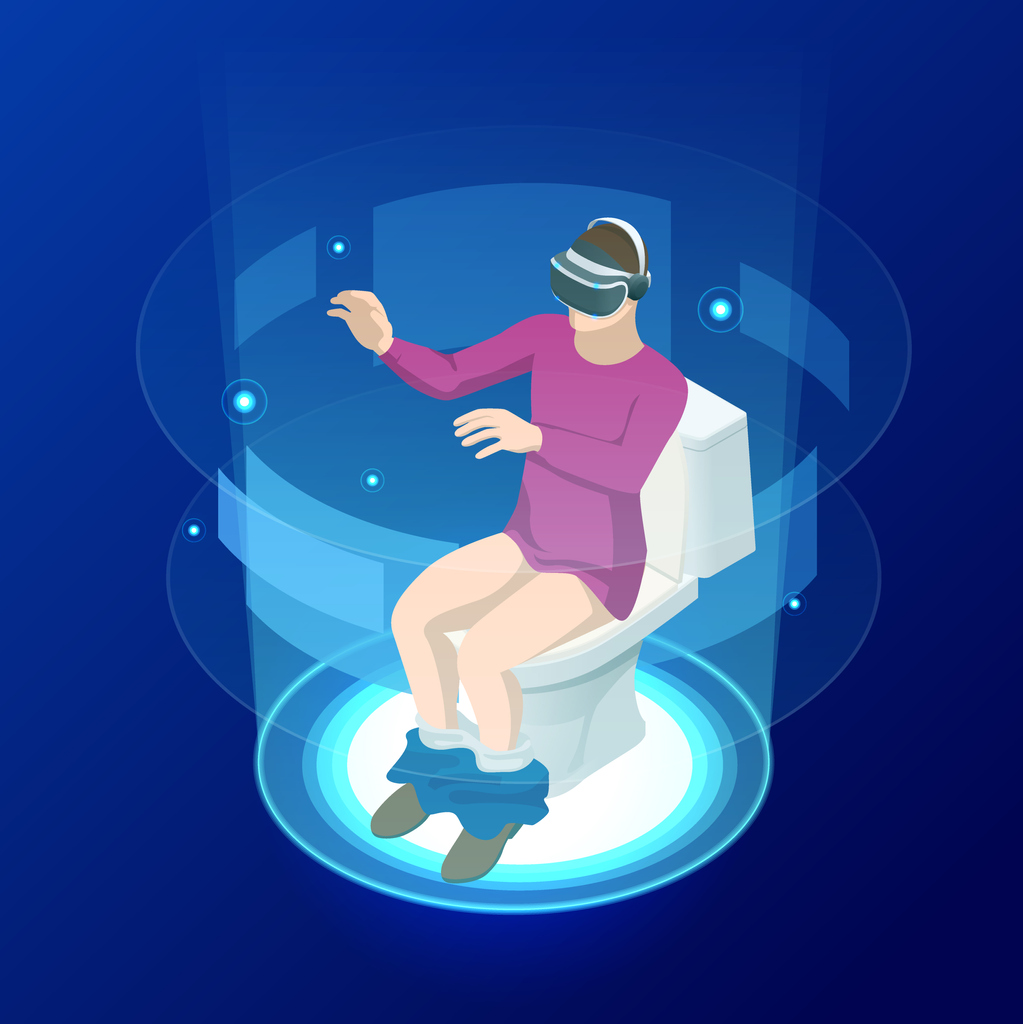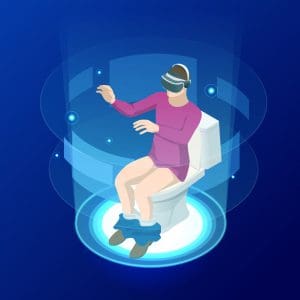Technology is getting a little too invasive—and maybe a bit too realistic, if you ask me. Two recent articles I read about hyper-realistic masks and high-tech toilets have me thinking we might need to start giving people back some little sliver of their personal space. [related]
Then again, maybe I’m just a little bit paranoid lately after two recent identity theft-related incidents directed at me.
First, someone added themselves as an authorized user on one of my credit card accounts—I was able to cancel the card before the guy bought anything with my number—then, a few days later, someone put my mail on a vacation hold for a month.
With the mail situation, it was especially perplexing because whoever thought I didn’t need to see my bills and junk mail for a month was able to do it online, but when I went to the post office to figure out what had happened, I had to show my driver’s license to prove it was really me.
So, excuse my skepticism when it comes to hyper-realistic masks and high-tech toilets. I’m sure their uses are not entirely evil, but I need some convincing.
No Masking My Fear
I wonder if someone had created one of these hyper-realistic masks of me—although they would have needed a lot of material and certainly could have chosen someone with more “eye candy” appeal and deeper pockets.
Real-F Co. of Japan is one of the companies perfecting this unusual—and, if you ask me, creepy—technology that could mean someone other than you has access to your cell phone or any other device you thought was protected when you chose to unlock it with Face ID.
The masks take a long time to make and are about $2,500 each, but the final products are a little too real.
Made using resin and plastic by about a half-dozen people, the hyper-realistic masks “attempt to replicate human skin right down to things like wrinkles, spots, moles and more,” according to a recent TechAcute report.
Creators use advanced scan data of the face that’s being recreated in plastic form. Companies can use them to help test their facial recognition software—or, perhaps more nefarious activities when they get into the wrong hands.
A Vietnamese cybersecurity firm named Bkav was recently able to fool the Face ID feature of the iPhone X with a mask they made for about $150, so already the knockoffs are coming. Like I said, these are scary times, people.
My #2 Concern: High-Tech Toilets
When it comes to so-called high-tech toilets, I must admit I’m torn on whether they’re a good idea and one that can provide true value to the medical community that can lead to quicker cures or earlier detection of physical troubles.
Researchers at the European Space Agency (ESA) and MIT have teamed up with sanitation specialists to create what they call the FitLoo, which screens human waste for early signs of disease.
Data gathered by the sensors in the toilet bowl could be beamed to the user’s mobile phone so they can see how their health is changing or even directly to the doctor so they could keep a remote eye on patients.
“The toilet offers an incredible opportunity for people to gain control of their health,” said Michael Lindenmayer, digital health and smart sanitation lead at the Toilet Board Coalition (who knew there was such a thing?), which represents many leading toilet manufacturers.
“At the moment is people only go to the doctor when they are sick. We do not listen to our bodies enough, but the toilet is listening every time we use it. There is a huge amount of health information that is simply flushed into the sewers every time we go,” he said.
The project is based on automated sample testing technology already used by astronauts to monitor health in space.
For example, the International Space Station (ISS) has been using a device called the Urine Monitoring System, which tests a small quantity of fluid when astronauts urinate.
Researchers have also been developing simple tests that can detect changes in glucose in urine or the presence of markers that might be an early warning of cancer or diabetes.
In a vacuum, this sounds like there’s really no downside to it and it can only benefit us all by making us aware of health concerns earlier than ever.
On the other hand, I already get grossed out by men who I see scrolling through their phones in public restrooms. Do we really need to add more technology to what’s supposed to be a simple flushing of waste from our bodies?












